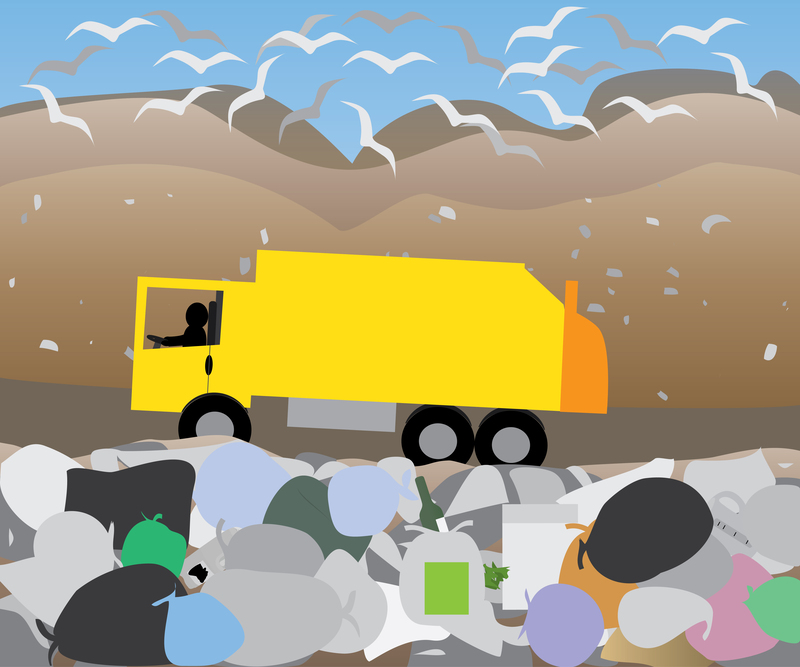Simple Adjustments for Maximum Waste Prevention at Home
Are you looking for easy ways to cut down on waste in your day-to-day life? Simple adjustments can lead to maximum waste prevention at home. Not only does minimizing waste benefit the environment, but it can also help you save money and live a more organized life. This comprehensive guide covers practical strategies you can start implementing today to move toward a zero-waste lifestyle.

Why Preventing Waste at Home is Essential
Each one of us generates waste daily -- from unwanted food to discarded packaging. According to the U.S. Environmental Protection Agency, the average American produces over 4 pounds of waste per day. With the world grappling with overflowing landfills and plastic pollution, preventing waste starts at home. By making informed choices, you can dramatically reduce your environmental footprint.
Benefits of Home Waste Reduction
- Saves Money: You buy less, reuse more, and avoid costly disposables.
- Less Clutter: Keeping only essentials creates a more organized, serene home.
- Protects the Planet: Less landfill waste, reduced pollution, and fewer greenhouse gas emissions.
- Promotes Mindfulness: Encourages thoughtful consumption and sustainable living.
Practical and Simple Adjustments for Maximum Home Waste Reduction
The journey to waste prevention at home doesn't have to be overwhelming. Here are simple adjustments you can make for maximum impact.
1. Conduct a Home Waste Audit
Before you can reduce waste, it's beneficial to know what you throw out. Spend a week collecting your waste, then sort and analyze it. This home waste audit will:
- Identify the most common types of waste your household produces
- Highlight avoidable and unnecessary items
- Pinpoint areas for maximum waste prevention at home
2. Embrace Reusable Alternatives
Switching from disposables to reusables is one of the simplest adjustments for minimizing household waste:
- Shopping Bags: Carry sturdy cloth bags for all shopping trips.
- Water Bottles & Coffee Cups: Use stainless steel or glass alternatives.
- Containers: Store food in glass or BPA-free reusable containers instead of single-use plastic wrap or bags.
- Cloth Napkins and Towels: Replace paper towels with washable cloth versions.
3. Rethink Food: Reduce, Repurpose, and Compost
Food waste is a significant part of household trash. Follow these simple strategies to reduce it:
- Plan Meals: Make shopping lists, plan weekly menus, and stick to them. Buy only what you need.
- Understand Date Labels: Know the difference between "best before," "sell by," and "use by" dates -- many foods are safe even after these dates.
- Repurpose Leftovers: Get creative with leftovers -- turn roast veggies into soups or stale bread into croutons.
- Compost Scraps: Start a compost bin for fruit and vegetable peels, coffee grounds, and eggshells, enriching your garden soil in the process.
4. Buy in Bulk and Minimize Packaging
Excess packaging contributes significantly to waste. Try these simple adjustments:
- Purchase staples (like grains, beans, pasta, and nuts) in bulk using your own containers.
- Choose products with minimal or recyclable packaging whenever possible.
- Opt for concentrated or refillable cleaning and personal care products to cut down on bottles and wrappers.
5. Repair and Repurpose Before You Replace
Items often have more life than we give them credit for. Instead of tossing:
- Repair appliances, clothing, and furniture when possible.
- Repurpose jars as storage containers or vases.
- Turn old t-shirts into cleaning rags or tote bags.
By making these small adjustments, you'll prevent unnecessary additions to landfills and save money.
6. Smart Shopping: Make Waste Prevention a Habit
Change your shopping habits with these tips:
- Purchase Quality Over Quantity: Invest in durable items that last longer.
- Support Local and Sustainable Brands: This often means less packaging and reduced transport emissions.
- Avoid Impulse Buys: Ask yourself if you genuinely need it or if it will end up as clutter.
With each purchase, consider its lifecycle and strive to buy items that support maximum waste prevention at home.
7. Donate or Sell Unwanted Items
Instead of discarding things you no longer use:
- Donate usable goods to local shelters, charities, or thrift stores.
- Sell items online or at garage sales.
- Organize a neighborhood swap to give old items new life.
This reduces waste while helping others and decluttering your home.
Advanced Strategies for Waste-Free Living at Home
After adopting basic habits, consider these advanced adjustments for maximum household waste prevention.
Start a Home Recycling System
- Designate bins for paper, plastics, glass, and metals.
- Research your local recycling guidelines to avoid contamination.
- Rinse and sort materials properly for effective recycling.
A well-organized home recycling system can dramatically lower your landfill contributions.
Ditch Single-Use Plastics
- Say no to plastic straws, cutlery, and plates -- carry your own.
- Switch to bar soap and shampoo bars instead of bottled alternatives.
- Choose loose produce or products packed in paper, glass, or biodegradable materials.
Over time, eliminating single-use plastics from your household adds up to significant waste reduction.
Adopt Digital Solutions to Prevent Paper Waste
- Go paperless with bills and statements whenever possible.
- Use apps or whiteboards for grocery lists and reminders.
- Set up a "no junk mail" sign on your mailbox.
These digital habits are small adjustments that can yield maximum benefits for waste prevention at home.
Make DIY Cleaning and Personal Care Products
- Create all-purpose cleaners with vinegar, baking soda, and essential oils.
- Make your own toothpaste, deodorant, and skincare using simple, natural ingredients.
- Store homemade products in reusable containers or glass jars.
Not only does this cut waste, but it can also be healthier and more cost-effective.
Tips for Keeping Waste Prevention Simple and Sustainable
Transitioning to a more waste-free home should be manageable. Here are tips to make it effortless:
- Begin One Step at a Time: Focus on one area (like food waste or plastics) each month.
- Get Everyone Involved: Involve family members, housemates, or children by making it a fun and educational experience.
- Celebrate Successes: Track progress and celebrate milestones, like a month without plastic bags or throwing away less trash than the week before.
- Be Patient and Consistent: Changing habits takes time -- don't get discouraged by setbacks.

Frequently Asked Questions: Home Waste Prevention
Is it expensive to reduce waste at home?
No! While some sustainable products have higher upfront costs, reusables save you money over time by reducing repeated purchases. Many waste-prevention steps, like buying less or repurposing items, actually reduce expenses.
What is the most effective adjustment for maximum waste prevention?
There isn't one magic step -- rather, a combination of simple adjustments like reducing food waste, switching to reusables, and avoiding single-use plastics has the most impact.
How do I get others in my home to participate?
Set up easy systems, like clearly labeled bins or lists of commonly wasted items. Share progress and make it a shared goal for everyone to reduce waste together.
Can I still reduce waste if I live in an apartment or have limited space?
Absolutely. Many home waste reduction tips -- like smarter shopping, reusing, donating, and digital solutions -- require minimal space. Countertop composters or under-sink recycling bins work well for smaller homes.
Conclusion: Every Simple Adjustment Counts
Maximum waste prevention at home starts with simple habits and tiny changes in our daily routines. Whether it's swapping plastic containers for glass, making better use of leftovers, or repairing an old lamp, every action adds up. Not only do you create a more mindful home, but you set an example for your community and future generations.
Start today. Choose just one adjustment from this guide and see how easy it can be to achieve waste-free living. You'll soon discover that a little effort goes a long way in making our planet cleaner and your home happier.
Ready to make your home a model for maximum waste prevention?
Adopt these simple adjustments today and make a big impact for both your family and the earth!